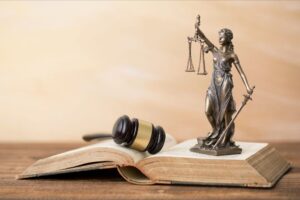
By: Anne M. Rudolph
Because the compliance group that reports in 2025 is the first to have to meet the new civility requirement for MCLE, it seems that civility in the legal profession has become a hot topic. But, the new MCLE requirement is just one aspect of the current focus on addressing and overcoming incivility.
The genesis for the new one-hour civility requirement was a report from the California Civility Task Force.[1] In 2021, the Civility Task Force, which was sponsored by the California Lawyers Association and the California Judges Association, issued an initial report on the status of civility in the legal profession. The Task Force observed that incivility has increased over the last few decades, stating that “[i]n an era marked by coarseness and political division, the legal profession suffers from a scourge of incivility. Discourtesy, hostility, intemperance, and other unprofessional conduct prolong litigation, making it more expensive for the litigants and the court system.” The Task Force cited recent case law in which the courts have criticized the conduct of some attorneys, describing that conduct as “aggressive,” “disrespectful,” and “demeaning.” The Task Force concluded that “what we’re seeing today is not the profession at its best.”
In response to this “scourge” of incivility, the Task Force proposed four initiatives for improving civility in the legal profession: 1) Require one hour of MCLE devoted to civility training; 2) Provide training to judges on the need to both curtail incivility and model civility, inside and outside the courtroom; 3) Enact meaningful changes to the State Bar disciplinary rules to address repeated incivility; and, 4) Require all lawyers to affirm or reaffirm an oath to maintain civility in his or her conduct.
The Task Force proposal for one hour of civility MCLE suggested that it should highlight the “link between bias and incivility.” The Task Force report noted that young lawyers, lawyers of color, women lawyers and lawyers from other marginalized groups are disproportionally treated with uncivil behavior. In response to the Task Force proposals, the State Bar did implement the civility requirement, but without the bias component.
Though the State Bar now requires civility training as part of the MCLE, the reminder that attorneys must conduct themselves in a civil and professional manner is a recurring theme. Various Bar Associations around the state have adopted civility guidelines or codes setting out standards of conduct that attorneys should model in their interactions with each other and the courts.
The San Diego County Bar Association has adopted an Attorney Code of Conduct, which is available on the SDCBA website. The Code of Conduct has three sections: I) General standards of conduct; II) Duties owed in proceedings before the court; and, III) Duties owed to members of the Bar.
The Code of Conduct contains recommendations about being courteous and respectful to the court and opposing counsel, always being accurate and not making misrepresentations, and how to conduct oneself professionally in the courtroom and in the discovery process.
The final recommendation is that “[l]awyers should conduct themselves so that they may conclude each case with a handshake with the opposing lawyer.”
Some people reading these conduct recommendations might think that these duties and standards are obvious and should go without saying. But, as the Task Force report detailed, the experiences of many attorneys, and the observations reported by many judges, show incivility remains rampant. We can all strive to improve civility and maintain the highest professional standards for ourselves. The new civility training seminars that we are all now required to attend will likely help in that process.
[1] Beyond the Oath: Recommendations for Improving Civility, Initial Report of the California Civility Task Force, September 2021